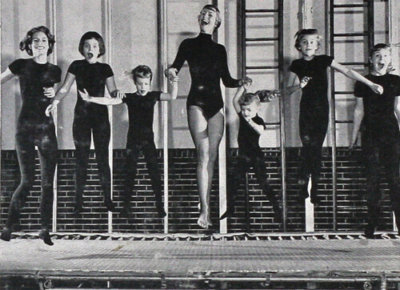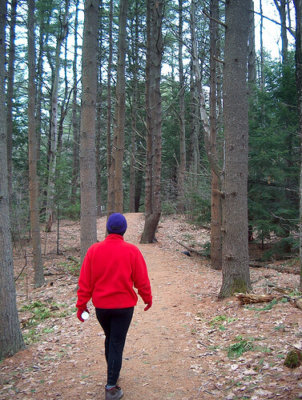How to Exercise More (Even if You You Are Depressed)

By: Kevin Dooley
How necessary is exercise for your mental wellbeing? Very. Research increasingly shows that exercise can do wonders, including one study finding that it can have as much of an effect on depression as antidepressants.
(For more on this read our piece, Exercise and Depression).
And yet for many of us it’s a challenge to make exercise a consistent part of our lives. What can be done to help you make the transition from sporadic to consistent? And how to exercise more if you have convinced yourself you hate it? Or if your low moods make it hard?
MAKING EXERCISE WORK FOR YOU
1. Work with your personality.
Too many of us approach exercise as something we ‘should’ do, or as a sort of compensation for being ‘bad’ and overeating. Or we do the exercise our friends told us, to or that our partner does.
The trouble is that our brain will naturally veer away from something that feels a chore or punishment. It’s more geared to chose things that feel a reward, or feels enjoyable.
And if you are depressed, your motivation will be even lower than usual, making you even less likely to do something you don’t like.
The secret to making exercise a consistent part of your life is therefore to do exercise that actually suits you and your personality, and feels enjoyable to you personally.
There are so many ways to exercise nowadays it’s possible for everyone to find exercise that works for them. If jogging bores you out of your mind, there are dance classes. If dancing feels too hyper, then try yoga. Don’t underestimate natural forms of exercise, either, like bicycling, country walks, or gardening. Treat exercise like dating – keep trying new forms until you find your perfect match.
2. Start slow.

By: Jackie
Don’t set yourself up for failure by deciding you’ll start running 40 minutes three times a week when you haven’t exercised in months.
How can you start slow? Maybe walking to work twice the first week and adding in a twenty minute run the second week makes more sense.
This is especially important if you are prone to low moods or depression and are using exercise as a form of self-help.
Depression can make us less logical and more self-critical, so it’s very important to not end up using it as just one more thing to beat yourself up over.
3. Think of ways exercise can work into the schedule you already have.
One of the most common excuses for not exercising is “I don’t have the time”. But what ways to get exercise could slot right in to the routine you already have?
(And if you are the sort who always feels like they are running out of time, try reading our article Always Need More Time? You Might Have Mental Health Issue).
Could you briskly walk the ten flights of stairs in your building instead of taking the lift, walk or bicycle to work instead of taking the bus? Could you set a timer and do the housework more vigorously? Play football with your kids instead of video games?
The good thing about this approach is that exercise tends to be something that can be addictive – in a good way. In other words, if you start to feel better or see changes in your physique because you are getting more natural exercise, you might actually then feel more compelled to to start taking an exercise class.

By: Emilio Labrador
4. Do double duty with your social time.
This doesn’t work for everyone, and if you are depressed you might prefer to be alone. But if you are motivated by others, see if you can make exercise a social experience.
Buy your coffees to go and walk and talk instead of sitting in a cafe. As a friend to go with you to a fitness class. Or meet new people by trying a new yoga or martial arts class. Going out dancing counts!
5. Add an animal.
If you have a dog, chances are they already make it impossible for you to avoid a daily walk, so make the most of that responsibility. You could double the amount of time you spend walking the dog each day, for example.
If you don’t have a dog of your own, see if you can borrow a friend’s, or check out services like borrowmydoggy.com.
Or consider offering to walk an elderly or disabled neighbour’s dog for them, with the added bonus that volunteering is also proven to improve your mood.
Again, this is way to get exercise and feel better – pets are also proven to elevate your mood.
6. Get outside.
Being in nature has been found to improve moods. Even urban dwellers can benefit – one study showed that simply living near a park can increase your mental wellbeing.
With the lift to your mood that nature offers, exercising in an outdoor environment could be something you are more likely to crave repeating.
Consider making at least one of your weekly exercise sessions outside, or add in a twenty-minute brisk walk around your local park to your weekends.
7. Keep track.
Don’t let a negative inner soundtrack tell you that your attempts at exercise will be pointless (again, depression can have this negative voice set on high).
Counteract your need to negate by keeping track of what exercise you do so you can’t deny your progress. Write down all your exercise achievements, time your runs, count your footfall on your walk with a pedometer. Or use one of the many fitness apps now available which can chart your progress and cheer you on.
8 Set exercise goals you can actually achieve.
Instead of using exercise as a way to prove to yourself you are a failure, use it to help you feel a sense of achievement. If we feel we can do something, then we are drawn to doing it again.
The secret is, of course, to make exercise goals that are actually something you can make happen.
Be extra vigilant that your exercise goals are achievable – use the S.M.A.R.T model to ensure they are something you can and will reach.
If you are the type to overshoot even using the S.M.A.R.T model, or perhaps suffer from adult ADHD and tend not to finish what you start, consider enlisting the support of friends, setting goals together.
9. Embrace the new.
It’s all to easy to feel a sensation of fear and think our instincts are telling us not to do something when really all you are doing is pushing against your comfort zone. The truth is that most people feel nervous trying new things.
But boredom is one of the fastest ways to give up a new habit. So if you feel a bit scared of walking into a salsa class, don’t turn back. Ask yourself what the worse thing is that can happen – you hate it and don’t return? You trip on someone’s foot but then never have to see them again?
I really can’t bring myself to get out the house, let alone exercise…
If reading all of this you feel hopeless, and if you can’t bring yourself to get out at all lately, it’s possible you are experience major depression over low moods. Sometimes the best exercise of all can be the exercise of reaching out for support when we need it. Talk to a friend you trust, try a confidential hotline, or consider the support of a counsellor or psychotherapist.
Do you have a great tip for making exercise a part of your wellbeing regime? Share below, we love hearing from you.





